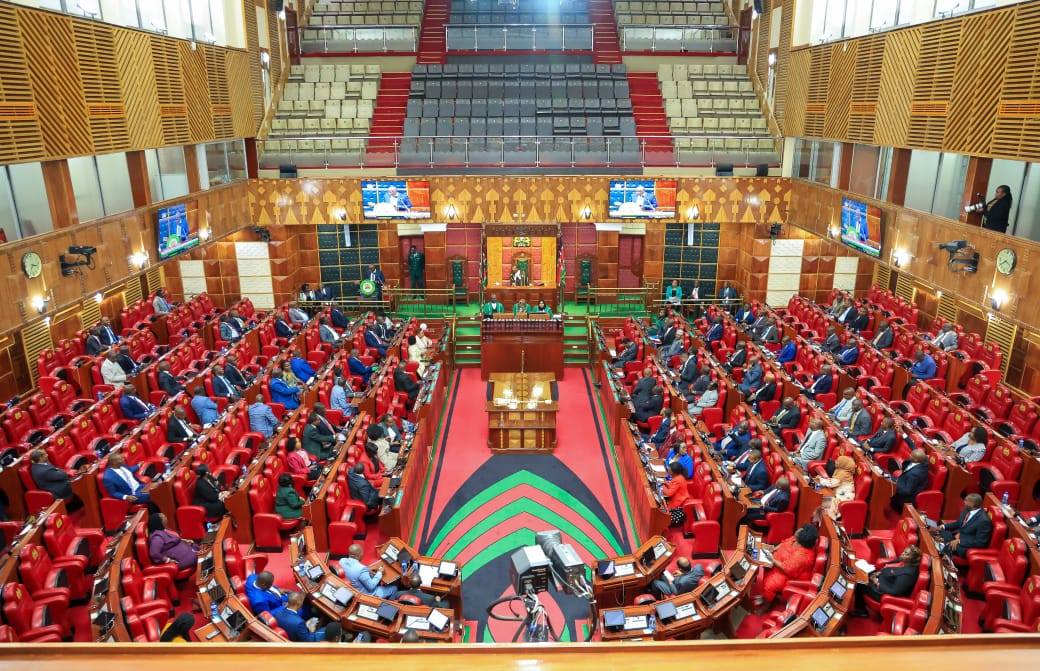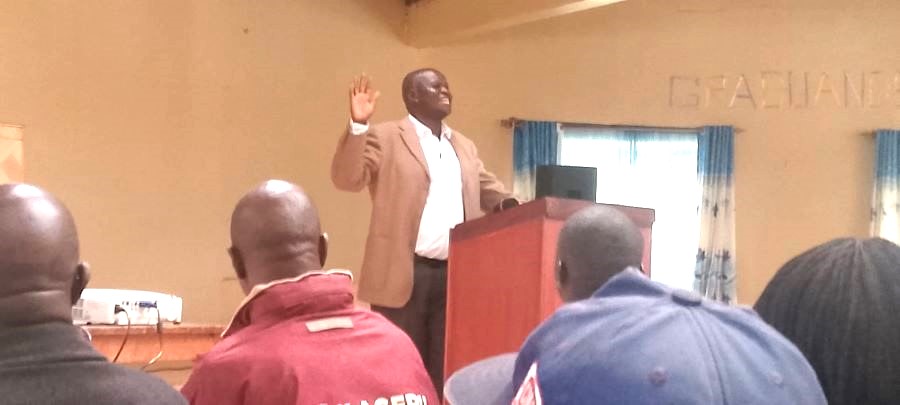The Competency Based Curriculum (CBC) whose reforms will be based on the recommendations by Kenyans who presented the same to President William Ruto’s taskforce on Education Reforms should not be discarded, an international expert on education says.
Regional Director, Education Development Trust, Richard King defended the skills already inherented at the initial stages of the CBC as critical to preparing the 21st century learners for the future.
He noted that although the challenging part of the CBC was making the implementation practical with unity among stakeholders, the system was headed for success, with the benefits set to be seen in the technical revolution at all levels of Kenya’s future development.
While appreciating the role of experts in shaping CBC, the Education Development Trust director insisted that teacher remained the foundation in ensuring the success of the education noting that the fact that the Kenya Kwanza manifesto had recognized the role of the teacher as paramount in shaping the future of the system.
King argues that with the beneficial link between CBC and Technical Vocational Education and Training (TVET) clear, the two areas of education were as good as the teachers who deliver the same hence the recognition of the teacher in the Kenya Kwanza manifesto remained a mark of vision and purpose.
Noting that the CBC connection with the technical institutions should fully incorporate teachers in the center of the education system, King defended the fact that there was no better education investment than in teacher quality.
In a number of expert papers, King explained that the CBC had the potential to build future citizens and the workforce apart from being the greatest equalizer that allowed equity among those in the labour workforce.
The Education Development Trust, King said, had spearheaded CBC implementation in Rwanda seven years ago where major successes have been recorded in a cross section of the technical areas to date.
He defended the skills inherent in the system as critical to preparing 21st Century learners for the future.
“While the hard part was making the implementation of the CBC practical, Kenyans and their government should not throw out the baby with the bathwater,” he said.
The fact that the Kenya Kwanza had pledged huge financial and qualified staff investment in TVETs, King appreciated, that it was clear the government intended to succeed in connecting its education system to the world of work which was necessary and would make Kenya realize its youth dividend.
President Ruto’s manifesto’s commitment to teacher training, the expert said was welcome being a key element in the shaping the future of the CBC system with research having shown that professionals learned best from their colleagues.
He said that the policy on teacher deployment and availability of incentives as indicated in the Kenya Kwanza government was a good initiative because it would open a way through which opportunities for peer teaching, mentorship and coaching and recognition for those teachers leading their peers are provided.
Systems allowing professionals to learn from one another at the end created a ripple effect with what is gained hence spreading instructional excellence countrywide, said the educationist
While digressing a bit, Mr. King noted that the fact that the government recognized that some children are at time left behind in access to quality education, the handles were known and included access and the quality of what was on offer.
Such anomalies appeared to have been tackled under the CBC although the education expert reminds Kenyans opposed to the CBC of the facts of the past- key among them the revelation that in 2019, more than a million children of primary school-going age were not in class.
Touching on the quality of education there has been disturbing statistics which indicate that about six out of 10 children still face what the World Bank defines as ‘learning poverty’-not being able to read a simple text by the age of 10.
The expert shows examples where technological interventions could be used to improve the quality and access to education by all-an area which the CBC system has committee to fully implement.
He explains that communication technology remained key in addressing some of the barriers to access and quality noting that St Thomas Secondary School, which attracts girls from the most difficult backgrounds in Kilifi County, went into record of winning a recent national science contest mainly due to technological related smart interventions.
The CBC system, the expert argues, had huge potential to succeed especially if the government provides proper ICT infrastructure borrowing from the lessons learned after the outbreak of the Covid-19 pandemic when virtual learning was initiated and become a success.
By Robert Nyagah
Get more stories from our website: Education News
You can also follow our social media pages on Twitter: Education News KE and Facebook: Education News Newspaper for timely updates.






